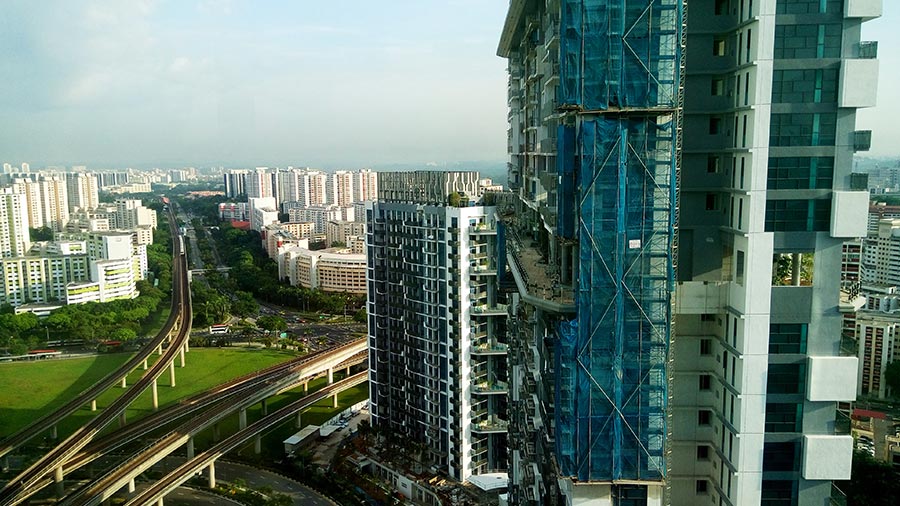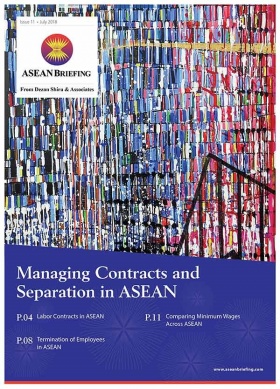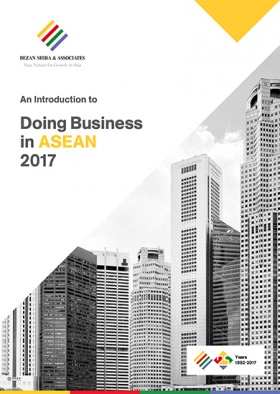Residency Schemes in ASEAN – Eligibility Requirements
Obtaining a long-term residency status is a cumbersome process for foreigners in ASEAN. The regulations and procedures vary significantly between the countries, and can sometimes be an expensive affair.
In this article, we give an overview of the permanent residency and other schemes available for foreigners wishing to reside in any of the following ASEAN states.
Cambodia
Cambodia does not offer permanent residency as its ordinary visa can be extended indefinitely. As a result, foreigners who wish to stay in Cambodia for a long period may either obtain and extend their business or ordinary visas, or apply for Cambodian citizenship.
A Business/Ordinary Visa (E) allows foreigners to stay for up to one month and can be easily extended for three months, six months or 12 months. Business visas are the most popular way to reside long-term in Cambodia.Cambodian citizenship can be applied for at the Ministry of the Interior, which normally takes two to three months to process. Eligible foreigners include those who:
- Make a cash donation to the government for the benefit of Cambodian people;
- Have lived and worked in Cambodia for a minimum of seven years, and are proficient in Khmer in reading, writing and speaking; or
- Are married to a Cambodian citizen, following three years of cohabitation from the date of marriage registration.
Indonesia
A permanent stay permit or KITAP is issued to foreigners for a period of five years and can be extended for an unlimited period unless it has been canceled. Eligible candidates include:
- Foreigners who hold a temporary residence permit as a religious cleric/missionary, expatriate worker, investor, or retiree;
- Foreigners legally married to an Indonesian citizen;
- Spouse or an offspring of a foreign national holding KITAP visa;
- Foreigners holding a retirement visa in Indonesia; or
- Dual citizenship holders, or former Indonesians regaining their citizenship.
Laos
Laos does not offer any form of long-term visa for non-citizens. Eligible applicants for the permanent residency status include the following:
- Foreigners who have lived in Laos for 10 continuous years including at least 10 months a year,
- Foreign individuals classed as specialists or scientists;
- Those who have run a stable business in Laos with a minimum investment of US$500,000 for at least five years; or
- Foreigners who have actively contributed to the development of the nation.
Malaysia
To attain a long-term residency status in Malaysia, foreigners may either obtain a permanent visa or choose the Malaysian residency program.
According to the Malaysian government, the following categories of foreigners are eligible for the permanent residency status in the country.
- Investors and high net worth individuals: Foreigners who maintain a bank account in the country with a minimum deposit of US $2 million, for five continuous years;
- Spouses of Malaysian citizens: Foreigners married to Malaysians for over five years;
- Experts or Professionals: Highly skilled professionals and experts holding an employment pass, and residing in Malaysia for a minimum of five years; or
- Those who score high in the point system.
Besides, foreigners may stay in the country with a long-term visa through ‘Malaysia My Second Home (MM2H) Program’. The program offers foreign nationals a long-term 10-year multiple entry renewable visa, provided the applicants fulfill the medical and financial requirements of the program. This includes showing financial proof of minimum liquid assets worth a minimum RM500, 000 (US$ 122,023) and offshore income of Rm10, 000 (US$2,440) per month for applicants under 50-year-old; and RM 350,000 (US$ 85,416) in liquid assets along with offshore income of Rm10,000 (US$2,440) per month for applicants over 50.
Myanmar
Following the announcement of Permanent Residence of a Foreigner Rules in 2014, permanent residence is initially granted for a period of five years, which is extendable thereafter, on annual basis.
Eligible applicants include
- Ex-Myanmar citizens or foreigners who desire to invest and operate a business in Myanmar, subject to certain specific conditions;
- Foreigners married to a Myanmar citizen for more than two years -a) who has within the 10 consecutive years from the date of application for permanent residence resided in Myanmar for at least three consecutive years; and b) who holds a type of visa that is not entitled to settle in Myanmar before the date of application of the permanent residence.
Philippines
To acquire a permanent residency status in the Philippines, a foreigner must be legally married to a Filipino or a former Filipino citizen. In addition, the applicants must submit and fulfill the following requirements.
- A notarized letter of application by the Filipino spouse;
- Duly accomplished consolidated general application form (CGAF);
- Copy of the birth certificate of the Filipino spouse;
- Copy of the Filipino spouse’s valid government-issued ID;
- Copy of the foreigner’s passport showing the date of arrival and visa (Balik Bayan Stamp);
- Immigration clearance certificate; and
- Authenticated copy of the marriage contract.
Alternatively, foreign nationals may opt for one of the following visas to acquire long-term residency in the country.
The Special Resident Retiree’s Visa (SRRV)
The SRRV permits foreigners and overseas Filipinos above 35 years of age to stay indefinitely in the country with different specific requirements; and
The Special Investors Resident Visa (SIRV)
The SIRV entitles foreigners investing in profitable economic activities to reside indefinitely in the Philippines, granting multiple entry privileges, for a period as long as the required qualifications and investments are still valid. The SIRV program requires investors to remit at least US$75,000 into the Philippines.
Singapore
Foreigners seeking permanent residency in Singapore must first obtain an Entry Permit – an application for Singapore Permanent Residence. This is available to the following categories of foreigners.
- A spouse or unmarried offspring (below 21) of a Singaporean citizen or permanent resident;
- Aged parents of a Singapore citizen;
- P, Q or S work pass holders, working in Singapore;
- Investors or entrepreneurs; or
- Those who satisfy certain specific guidelines.
Singapore residence visa is also available for the following categories of foreigners.
- Foreign professionals, technical personnel, and skilled workers;
- Foreign investors with a minimum investment of SG$2.5 million in a new business, an expansion of an existing business or in a Global Investment Programme-approved fund; or
- Foreign artists in photography, dance, music, theatre, literature or film.
Application process and requirements differ for each of the categories of applicants.
Thailand
Foreigners eligible for permanent residence in Thailand include individuals who:
- are related as a spouse, parent, or guardian to a Thai citizen or a person with permanent resident status in Thailand;
- are foreign investors who have invested a minimum of 3 to 10 million baht (US$90,198 – US$300,660) in the Thai economy;
- are workers in relevant business visa categories;
- are classified as professionals or experts; or
- are in other categories as determined by the government.
Applicants must hold a Thai non-immigrant visa for three years or more prior to the application.
Editor’s Note: The article was first published on June 25, 2015 and is updated on August 16, 2018, as per latest developments.
About Us
ASEAN Briefing is produced by Dezan Shira & Associates. The firm assists foreign investors throughout Asia and maintains offices throughout ASEAN, including in Singapore, Hanoi, Ho Chi Minh City and Jakarta. Please contact us at asia@dezshira.com or visit our website at www.dezshira.com.












